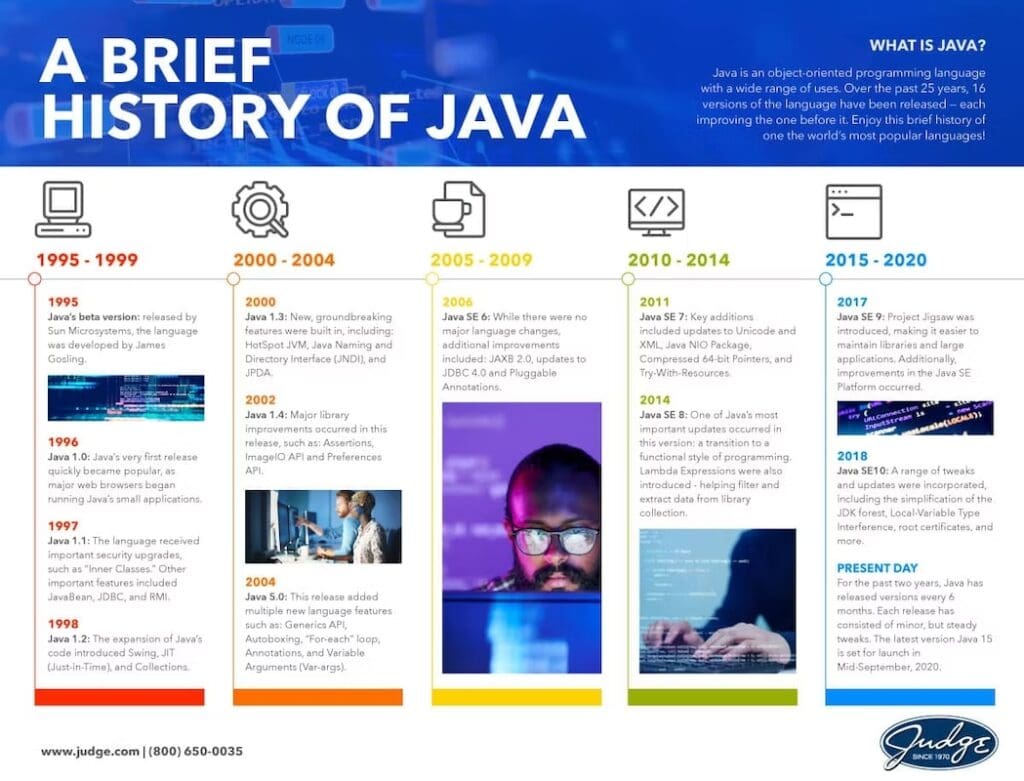A Brief History of Java
As one of the oldest and most popular languages on the planet, the history of Java is one of steady improvement and adaptability. In its earliest days, Java was designed as a tool for interactive television. It was too advanced for its time, but its creators were innovative and quickly identified more promising uses. (Click for a larger image)
Today, Java is free to access and used across a wide range of platforms. Java is employed in internet programming, mobile devices, and video game development. It is used in banking, financial services, information technology, big data, and many fields of scientific research and inquiry.
Java developers are among the most desired professionals in the tech world. Whether you are interested in advancing your career by learning a new language, or you’re embarking on your programming journey for the first time, Java is well worth the effort. Job responsibilities can vary from design to development, process testing and more. To read more on this subject, here is an article we wrote about it.
Java has been around for over two decades and its popularity continues to grow. There are no signs that this high-level, object-oriented language is going anywhere.





